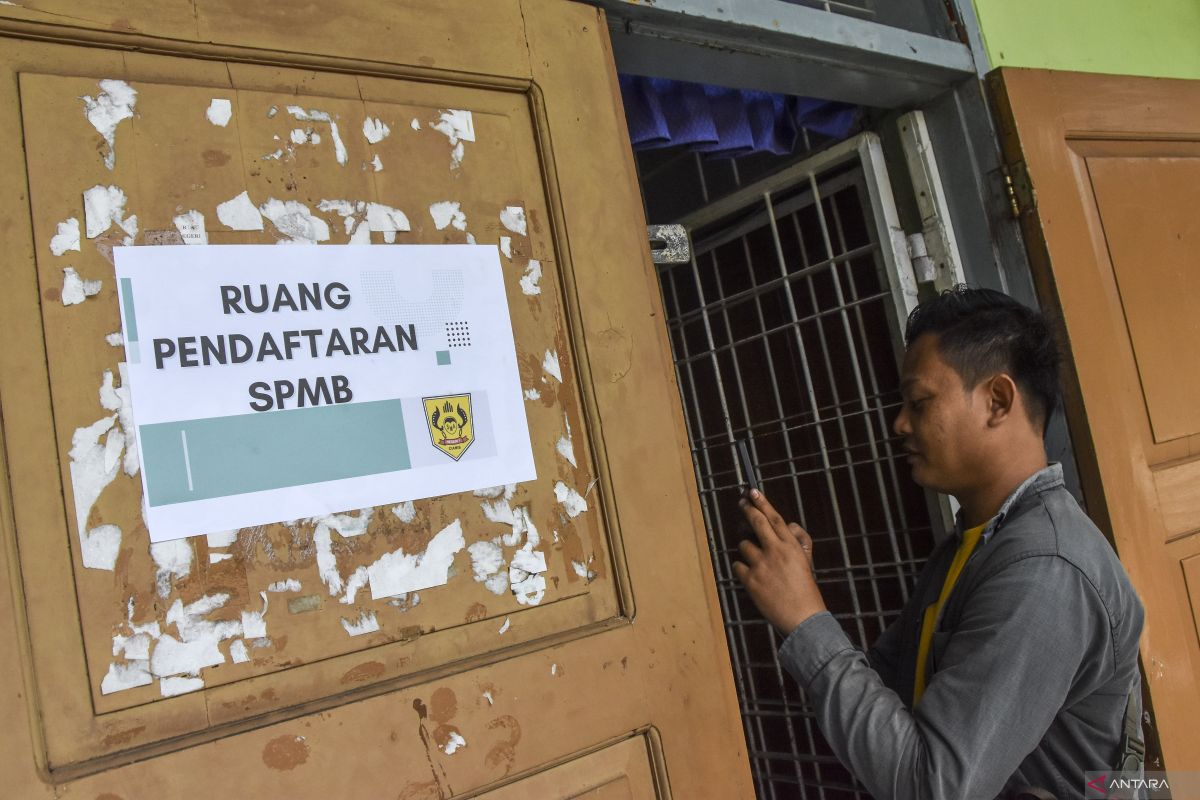It’s happening, folks. Two-division Test cricket, the beginning of the end of the oldest format as we know it, could be heading your way from 2027 after the ICC commissioned a working party, led by their new chief executive Sanjog Gupta, to examine the possibility of a new structure.
The move, which could involve two leagues of six, with promotion and relegation, has long seemed inevitable – mainly because the so-called Big Three like playing each other so much, and never mind about saturation point.
As things stand, India, England and Australia play five-match series against each other, home and away, every four years. The cricket is compelling (except when England travel to Australia and India, when it’s one-sided), and the viewership unignorable. The ongoing Anderson–Tendulkar Trophy has ticked both boxes.
But two divisions would allow the Big Three to shorten their four-year cycle to three, and further cement their exclusivity. This would be the cricket capitalists’ wet dream, and a bit of a nightmare for almost everyone else.
Gupta, whose recent appointment has strengthened India’s grip on the levers of power, made clear his view at MCC’s World Cricket Connects event in 2023, when he spoke of ‘hard choices’, of there being ‘enough data to suggest what direction the game is going in’. By way of an analogy, he mentioned the demise of Blackberry, which ‘disappeared and was replaced by another product’.
But Test cricket is not a mobile phone, nor is it primarily a business. It is a game, watched and loved by millions and stretching back nearly a century and a half. For many, it is a way of life. And despite constant prognostications of its demise, it continues to connect emotionally with those who follow it.
The ICC have commissioned a working party to examine the possibility of two-tier Test cricket
If the change was made, it would see England, India and Australia playing each other more
The viewership for those games is unignorable, but it will have consequences on other teams
Perhaps the illogicality of a much-loved format that doesn’t always gets bums on seats but has a broader, less tangible, resonance, is what irks the money men.
And that’s a problem, because the rich and powerful tend to get what they want: cricket’s hopelessly inequitable financial model has led us to where we are now, to this hand-wringing insistence that Something Must Be Done.
India’s damaging refusal to share more of the wealth is periodically summed up by Ravi Shastri, who believes the BCCI’s share of the ICC’s annual handout (around 39%) is far short of what his country deserves. And raw economics say he has a point, since Indian cricket generates roughly 85% of the game’s income.
But by hard-baking financial inequality into the system, cricket has created a world in which – hey presto! – the only solution is to make things more unequal. Which is what precisely what two divisions would do.
Consider the repercussions of being in the lower tier, which would probably constitute Pakistan, West Indies, Bangladesh, Afghanistan, Ireland and Zimbabwe. For two years, Pakistan and West Indies would play substandard opposition, which would widen the gap between them and the teams in the top flight.
By the time one of them earned promotion, they would be ill-equipped to deal with Australia, South Africa, England, India, New Zealand and Sri Lanka (to list them in order of their current rankings).
Test cricket would become less competitive, even if – for the top six – it would become more lucrative. And if you’re stuck in division two for a few years, well, the temptation may be to give up altogether.
Yet it doesn’t take much digging to find storylines that threaten the prevailing narrative. England’s most recent series in Pakistan ended in defeat.
The ICC's new chief executive Sanjog Gupta (right) is leading the working party on the idea
There would be a huge impact on those in the lower tier, which would likely include West Indies
It is easy to forget that last year England lost to Pakistan, who may also be in division two
They have not won in the Caribbean for 22 years. And when they last bothered to play in Bangladesh, they drew 1–1.
Yes, West Indies were bowled out recently by Australia for 27 in Jamaica. But while their batting in that series was woeful, their bowling was potent: Australia’s totals were 180, 310, 286, 243, 225 and 121. If cricket adds a structural hierarchy to the financial imbalance, West Indies’ batsmen may never get the chance to have another crack at Australia, and back up their bowlers’ good work.
There is a solution, and it requires the international game to come together, rather than splinter apart. As I outlined in this year’s Wisden, it would involve a more sensible World Test Championship, which at the moment is an asymmetrical mess.
Quite simply, each team would play the others home and away over a four-year cycle in series of at least three games. That would allow the Big Three to retain their money-spinning five-match series if they so wished, though only the first three games of each would count towards the WTC.
As they currently do, each home board would have the option of staging four-day Tests, allowing three to be played in three weeks, and encouraging brighter cricket (though that is the trend anyway).
The leader at the end of the four-year cycle would head straight to the final, allowing the second- and third-placed teams to play off for the privilege of meeting them. And by staging the event over four years, not two, cricket would fall into line with football and rugby, who understand the importance of scarcity.
Opponents of simple structures such as this – and unlike the current WTC, it does not require a calculator – usually cite the India–Pakistan problem. But we should not allow one squabble to derail the whole argument: if India can’t be persuaded to play Pakistan on neutral territory, as they have done for years in World Cups, then they can share the points.
Of course, none of this is feasible if many boards can’t afford to host Test cricket, and that won’t change unless the ICC’s financial model is ripped up. But the unimaginative two-divisions proposal will benefit only the rich, and cricket has done quite enough of that.
The division one teams will get stronger and those in division two will struggle to step up
A more sensible World Test Championship, which at the moment is an asymmetrical mess, is needed, but there are definitely better options than the one on the table at the moment
England penalty exposes broader issues
England’s two-point penalty for a slow over-rate at Lord’s was a reminder of a few things, none of them uplifting.
First, why do the ICC continue to mess with the integrity of the (already flawed) World Test Championship by imposing excessive punishments unrelated to the quality of the cricket?
Second, if the umpires continue to move around with the urgency of a three-toed sloth, with what authority will they be able to tell the players to hurry up?
Third, no one has yet explained why innings of fewer than 80 overs are discounted from calculations, following Usman Khawaja’s lobbying of the ICC in 2023, when the regulations were altered mid-Ashes.
At Lord’s, England’s second innings lasted 62.1 overs, all but one of which India needed until 5pm on the fourth day to bowl.
England should speed up, no doubt. But the system is a farce.
England were given a two-point World Test Championship penalty for a slow over-rate
It exposes several issues, including the pace of play that umpires are setting in matches
Selection anger is nothing new
There’s nothing new under the sun, including public outrage at selection decisions. These days, social media provides an easy outlet.
Back in 1954, when England picked Frank Tyson for the Ashes tour instead of Fred Trueman, fans had to go to the trouble of writing a letter. And, as we learn from Richard Whitehead’s outstanding new book, Victory in Australia, several did.
‘I feel like striking you, so bitter is my resentment,’ wrote one. Another lamented: ‘If Trueman is to be left out on account of some character defect, I must indicate that neither Edrich or Compton can be classified as angels.’
Mrs O’Neill of St Ives declared: ‘We deserve to lose the Ashes.’ Needless to say, England won 3–1 that winter, with Tyson among the heroes.
T20 Champions League questions
As this column revealed back in March, a revival of the old T20 Champions League is in the pipeline, though no one has yet explained who will play for which team when inevitable clashes occur.
Because if the IPL franchises get the first pick of the talent, it will simply become another instrument of Indian power.

 2 months ago
18
2 months ago
18

















































